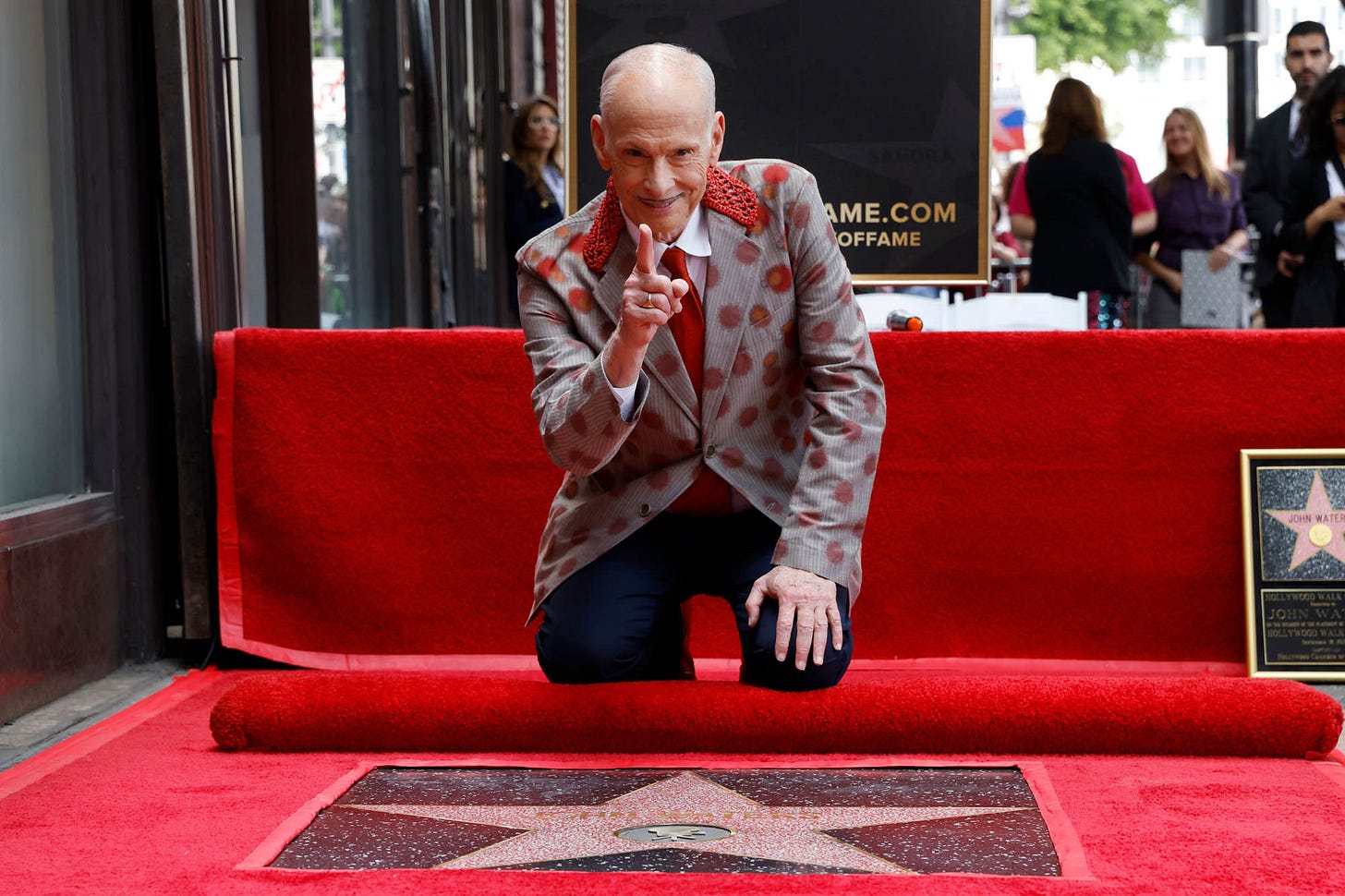The John Waters Viewing Guide
It’s better to ease in if you’re totally unfamiliar

With John Waters receiving a star on the Hollywood Walk of Fame this week, and the prospect of a new Waters film—at last—on the horizon, now is a good time to talk about John Waters’ filmography and how best to approach Waters’ work for the uninitiated. You can’t just dive into the world of John Waters—I mean, you CAN, but trust me, it’s better to ease in—if you’re totally unfamiliar.
The first thing you have to do before beginning your Waters journey is ask yourself if you really, truly have the stomach for it. Waters’ films are gross. And I don’t mean gross as in “gory”, though they can be, or “perverted”, though they are certainly that, too. The fetish indulgence, the grotesquerie, the body horror, the nudity, the bestiality, the cannibalism, the incest—John Waters EARNED his title as the “King of Filth”. There are shit-stained sex scenes, people eating feces, people eating a lot of disgusting stuff, lobster rape, so many fetishes I can’t even count them, live on camera chicken decapitations, singing buttholes, just a lot of anuses in general, and gallons of vomit, most of it actually real, produced in the moment.
Keep reading with a 7-day free trial
Subscribe to The Squawk to keep reading this post and get 7 days of free access to the full post archives.


